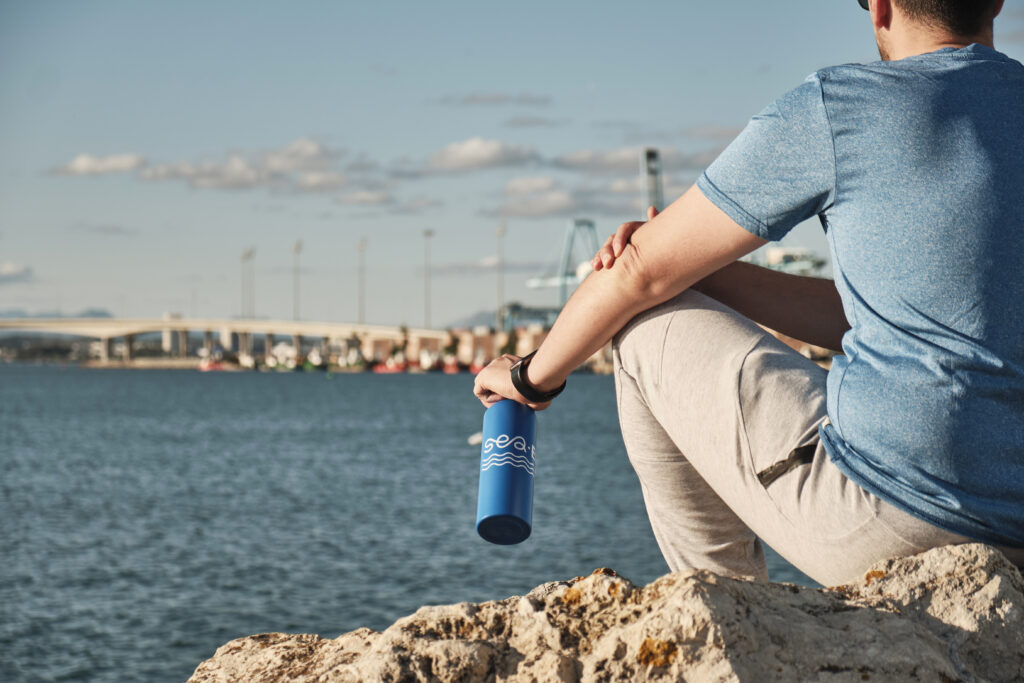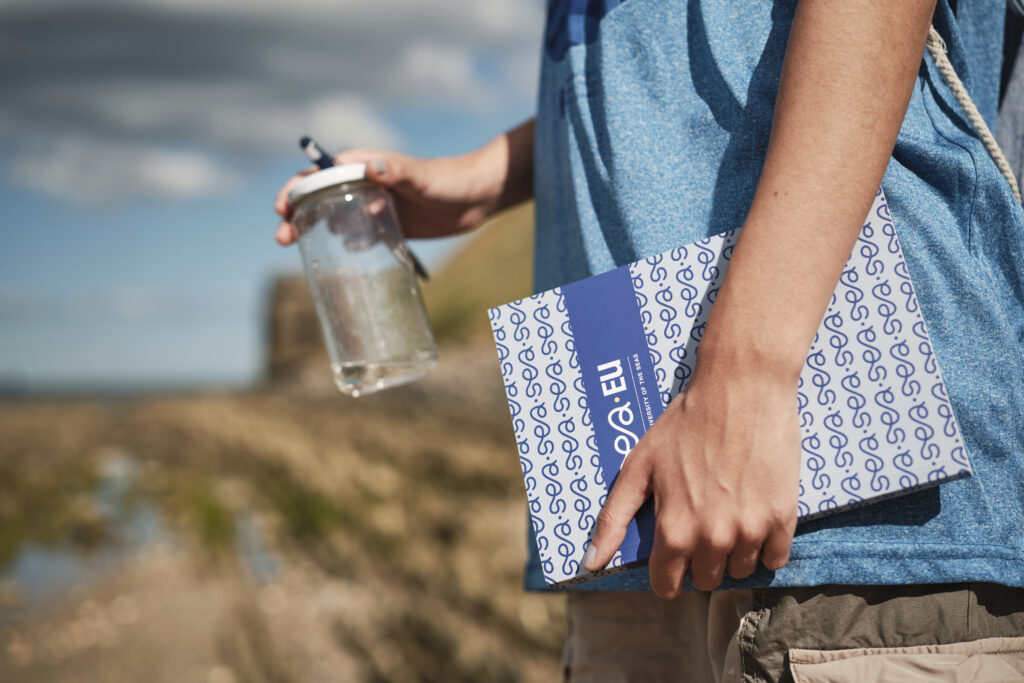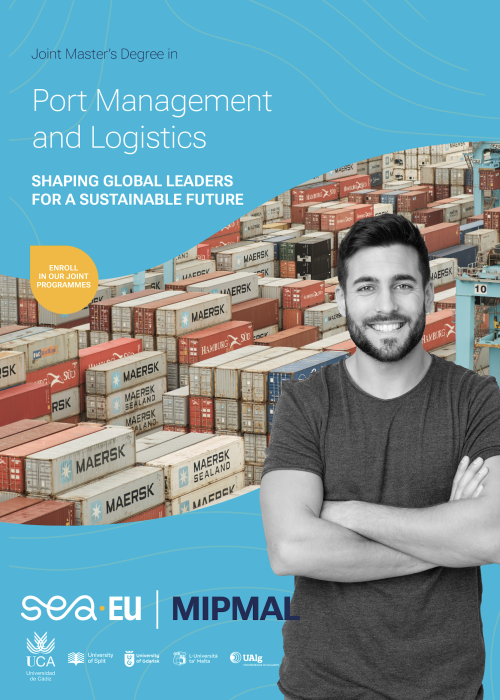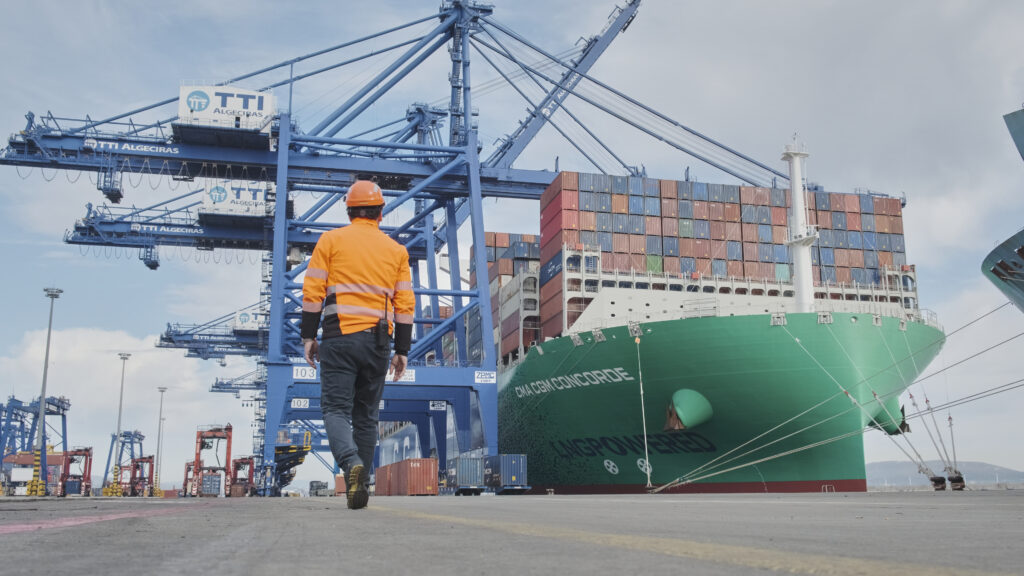SEA-EU Joint Master: MIPMAL
Driving Smart Ports and Sustainable Logistics Forward
About the programme
Step into the dynamic world of maritime logistics with the Joint Master in Port Management and Logistics (MIPMAL) designed in collaboration with the Ports Authorities of SEA-EU territories. Gain expertise in port operations, sustainable transport systems, and logistics integration. Study across five prestigious coastal universities and learn to navigate the complexities of digital environments and energy transitions. With the growing demand for skilled professionals in port and logistics management, MIPMAL prepares you to lead in a thriving sector of global trade.As a SEA-EU Joint Programme, MIPMAL is part of a transnational educational initiative that integrates the expertise, resources, and infrastructures of 5 SEA-EU universities, providing students with a truly European and interdisciplinary academic experience.
MIPMAL is a two-year programme, fully taught in English, structured as follows:
Y1. First semester. Leaving the safe harbour!
Module 1. Port Services & Operations. 30 ECTS.
Y1. Second semester. Full steam ahead!
Module 2. Port Economics & Logistics. 30 ECTS
Y2. Third semester. Fair winds and following seas!
Module 3. Port Law & Digitalisation. 30 ECTS
Y2. Fourth semester. Riding the wave!
Module 4. Research Track. 30 ECTS. Two track options:
- Industrial Track: Internship (20 ECTS) + Master’s Dissertation (10 ECTS)
- Research Track: Master’s Dissertation (30 ECTS)
MIPMAL includes a mandatory mobility period of 12 months, ensuring that students gain experience across different institutions and work environments.
Call for Applications 2026/28:
Starting campus: University of Split (UNIST)
Phase 1: Non-EU Candidates– 10 February – deadline: 30 April
Phase 2: EU Candidates – opening 1 May – deadline: 15 July
Phase 3: EU Candidates – opening 21 July – deadline: 6 September
Application Procedure
PHASE 1 Non-EU candidates | PHASE 2 EU candidates | PHASE 3 EU candidates | |
Open Call | 10 February – 30 April | 1 May – 15 July | 21 July – 6 September |
Document validation | 1-7 May | Ongoing | Ongoing |
Provisional list of validated applications | 8 May | 17 Jul | 8 Sep |
Appeal to the provisional list of validated applications | 11-13 May | 20-21 Jul | 8-9 Sep |
Final list of validated applications | 14 May | 21 Jul | 10 Sep |
Selection process | 14-21 May | 22-28 Jul | 10-14 Sep |
Provisional list of selected candidates | 22 May | 28 Jul | 15 Sep |
Appeal to the provisional list of selected candidates | 25-26 May | 29-30 Jul | 15-16 Sep |
Resolution. Final list of selected candidates | 27 May | 31 Jul | 17 Sep |
Acceptance of the seat by the candidate | 1-12 Jun | 1 Aug-3 Sep | 17-25 Sep |
Visa procedure | N/A | N/A | |
Enrolment | 1-12 Jun | 1 Aug – 3 Sep | 17-25 Sep |
Required documents
Please note: All applicants must meet the admission requirements prior to applying. We do not accept applications or documentation after the given deadlines.
In the following paragraphs you will be able to find the general requirements to access MIPMAL.
- A Bachelor’s degree (EQF Level 6) or an equivalent qualification from a recognised institution.
- Minimum English level B2, according to the CEFR (Common European Framework of Reference for Languages).
The following supporting documents will be uploaded into the application system. Please note that all documents need to be uploaded in PDF.
- Recent photograph (Photographs serve an identification purpose. Therefore, ‘selfies,’ casual photos, or any other photos that do not meet the formal requirements of official documents will NOT be accepted).
- Copy of a valid Passport/ID Card document.
- Copy of official university first cycle qualification (EQF Level 6 – 180 ECTS) or equivalent.
- Copy of transcript of academic records at EQF Level 6.
- Proof of B2 (CEFR) English level
- CV (English version – max. 2 pages). Europass CV recommended
- Recommendation letters (optional). Please note that the letter(s) should be signed by a referee and include their position and title, institution name and contact details.
Legalisation of documents
(*) Important considerations about your qualifications
For students from EHEA universities, legalisation is not required if their documents were issued in a country that is part of the European Union or a member of the European Economic Area. Bachelor’s and Master’s degrees will be automatically recognised in accordance with the Lisbon Recognition Convention.
Legalisation of documents issued outside Europe. All other students must observe the following conditions:
Official Translation of documents issued outside Europe. Diplomas and transcripts of academic records, and other official records, issued outside Europe should be officially translated into English by a Certified Translator. The translation should include all relevant seals, signatures, and stamps from the original documents. The translator should provide a certification statement attesting to the accuracy of the translation. This statement typically includes the translator’s credentials and contact information, a declaration that the translation is a true and accurate representation of the original document, and the translator’s signature and date.
Notice: Documentation that has not been duly legalised in accordance with the regulations in force in the country of issue will not be considered valid for the purposes of the application process. Furthermore, copies must be submitted in high-quality scanned format; photographs of documents will not be accepted.
Selection criteria
The Academic Steering Committee will oversee the selection process. The committee will review the applicants’ academic records, considering their GPA, relevant coursework, and any other academic and professional achievements and honours.
The ranking of the students involves assigning points (from 0 to 100) to the candidate’s merits and weighting them to determine the final score:
a) GPA obtained in the Bachelor’s or Master’s degree: 50%
b) English Language Certificate: Up to 10% (Required B2; 5% C1; 10% C2)
c) Relevant work experience and other merits related to the field of the Master’s programme stated in the candidate’s CV: 40%
While letters of recommendation do not carry specific weight in the ranking process, they provide valuable supporting evidence that enhances the overall assessment of candidates, contributing to a more thorough and equitable selection process.
Starting date
The second edition of MIPMAL will start in October, 2026 for the academic year 2026-2027.
Participation fees
Student participation fees cover all costs associated with participation in the programme. This includes tuition fees, access to library and laboratory facilities, mandatory insurance, enrolment fees at the consortium institutions, administrative and organisational support provided by consortium partners, examination fees, and any other compulsory costs directly related to the student’s involvement in the programme.
Student participation fees do not cover accommodation, travel and travel documents (such as visas or passports) required within the framework of the mobility programme. They also do not cover any costs beyond the standard duration of the degree programme, such as re-examination fees. In the event of failure, delayed graduation, or the need for re-enrolment, any additional costs must be covered by the student using their own funds.
In order to ensure equal treatment of all applicants, a single participation fee has been established for all students, regardless of their nationality or country of origin. This measure aims to guarantee that access to the programme is based solely on academic merit and motivation, in line with the fundamental principles of the European Higher Education Area.
€4,500/year
Funding opportunities
SEA-EU Fee Waiver Scholarships
To promote the participation of students from diverse economic backgrounds, the Joint Programmes Coordination Office will award 10 merit-based fee waiver scholarships. The scholarships will consist of a full exemption from participation fees for the specified academic period, in accordance with the conditions and criteria established by the programme’s Academic Steering Committee.
External scholarships
Interested candidates must carefully review the scholarship requirements to assess their eligibility, as these are external scholarships not managed by the programme. Applicants are solely responsible for completing all application procedures. In the event that a scholarship is awarded, they must inform the Master’s Technical Office so that the necessary administrative arrangements can be made.

MIPMAL
This document provides an overview of the programme’s main objectives and course structure, as well as the current regulations regarding the academic courses, internships, and the Master’s dissertation.

SEA-EU
LEARN MORE ABOUT THE ALLIANCE
MIPMAL is offered by SEA-EU, an Alliance of 9 European Universities shaping the future of Higher Education.

MIPMAL
APPLY NOW!
Apply now and become a key player in the future of port management and logistics
Frequently Asked Questions (FAQ)
About the Programme
What are SEA-EU joint programmes?
Which universities are involved in MIPMAL?
The five Universities that have co-created the master programme are:
University of Cadiz (Spain). Coordinating institution
University of Split (Croatia)
University of Gdansk (Poland)
University of Malta (Malta)
University of Algarve (Portugal)
Is MIPMAL accredited in all SEA-EU countries?
What is the difference between a joint degree and a double degree?
Admissions & Requirements
Academic requirements for enrolment
a) Legalisation is not required in the case of students whose documents were issued by countries in the European Union or members of the European Economic Area.
b) All other students must observe the following conditions:
Documents issued in countries signatory to The Hague Convention of 5 October 1961 need only be stamped with the Apostille of The Hague by the relevant authorities in the country of issue.
Documents issued in all other countries must be duly legalised.
Legalisation services are provided by:
The Ministry of Education of the student’s home country, for degree certificates and transcripts, and the relevant Ministry of the home country for birth certificates and certificates of nationality.
The Ministry of Foreign Affairs of the country in which the documents were issued.
Do I need to take a language test? What level is required?
To be admitted to the Master’s programme, you are required to submit a certificate demonstrating your proficiency in English. The programme mandates a minimum English proficiency of B2 level according to the Common European Framework of Reference for Languages (CEFR), unless English is your native language.
Applicants who have obtained a previous Bachelor’s or Master’s degree from an English-taught programme in Australia, Canada, Ireland, New Zealand, the United Kingdom, or the United States are automatically exempt from this language requirement.
How do I apply, and what are the deadlines?
See the handbook to check application procedure.
Can I apply if I am not currently studying at a SEA-EU university?
Yes, applications are open to students from outside SEA-EU.
Mobility & Programme Structure
Is it mandatory to study at multiple universities?
Yes, SEA-EU joint programmes involve studying at two or more partner universities, ensuring an international and multidisciplinary education.
How long do I have to spend at each university?
The master’s programme includes a compulsory mobility period of 12 months, encompassing two semesters in the second year.
How are the courses structured in a joint programme?
Courses are co-designed by partner universities, combining in-person, online, and hybrid learning formats.
Are the courses taught in English or other languages?
SEA-EU joint programmes are taught in English.
What kind of support is provided for student mobility?
SEA-EU universities offer guidance on visas, accommodation, and integration into the host university. Scholarships and mobility grants may be available.
Costs & Scholarships
How much does it cost?
MIPMAL costs 4.500€ per year (including: International Health Insurance, Student Card, …)
Are scholarships or financial aid available?
Various funding options are available. Check the handbook to see options.
Are mobility costs covered by the programme?
Mobility funding depends on the programme and available scholarships.
Do students have to pay tuition fees at all universities they study at?
Students pay tuition fees at the coordinating university only: University of Cadiz.
Degree & Recognition
What degree will I receive upon graduation?
Students will receive a joint diploma issued by all participating universities.
Is my degree recognized in all SEA-EU countries?
Yes, SEA-EU joint degrees are fully accredited and recognized in all partner universities’ countries.
Can I work in any EU country with this degree?
Yes, the degree is recognized across the European Union, enabling graduates to pursue professional careers in different countries.
Can I continue to a PhD after completing a joint master's degree?
Yes, SEA-EU joint master’s degrees provide access to PhD programmes in Europe and beyond.
Career Opportunities
What are the career advantages of studying a joint programme?
SEA-EU joint degrees enhance employability by providing international experience, interdisciplinary knowledge, and a strong European network. Employers value graduates with global perspectives and adaptability.
Do these programmes include internships or work placements?
Yes. Year 2, fourth semester includes an option with an international internship.
OPTION A. Industrial track: Internship (minimum 3 months) + Master’s Dissertation
More information?
jointprmanager@sea-eu.org
Joint Bachelor in Sustainable Blue Economy
Dive into the future of sustainability with the Joint Bachelor in Sustainable Blue Economy (SeaBluE). This program equips you with the knowledge to address critical challenges like marine pollution, overfishing, and climate change. Study at multiple coastal universities, develop adaptive and transferable skills, and gain a holistic understanding of marine ecosystems and economic growth. Become a leader in sectors such as marine conservation, sustainable fisheries, and maritime policy. Your journey toward a sustainable future begins here.


